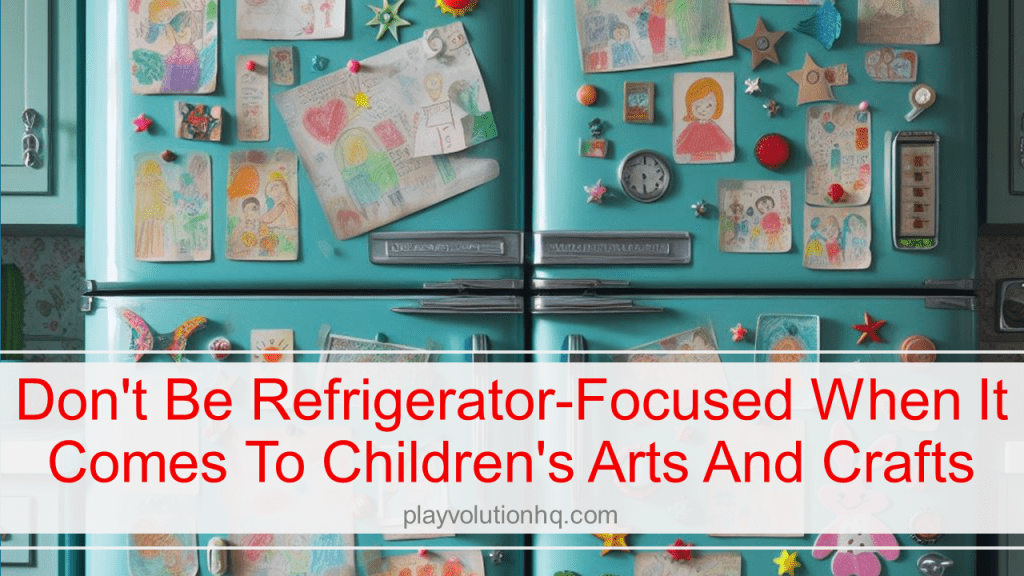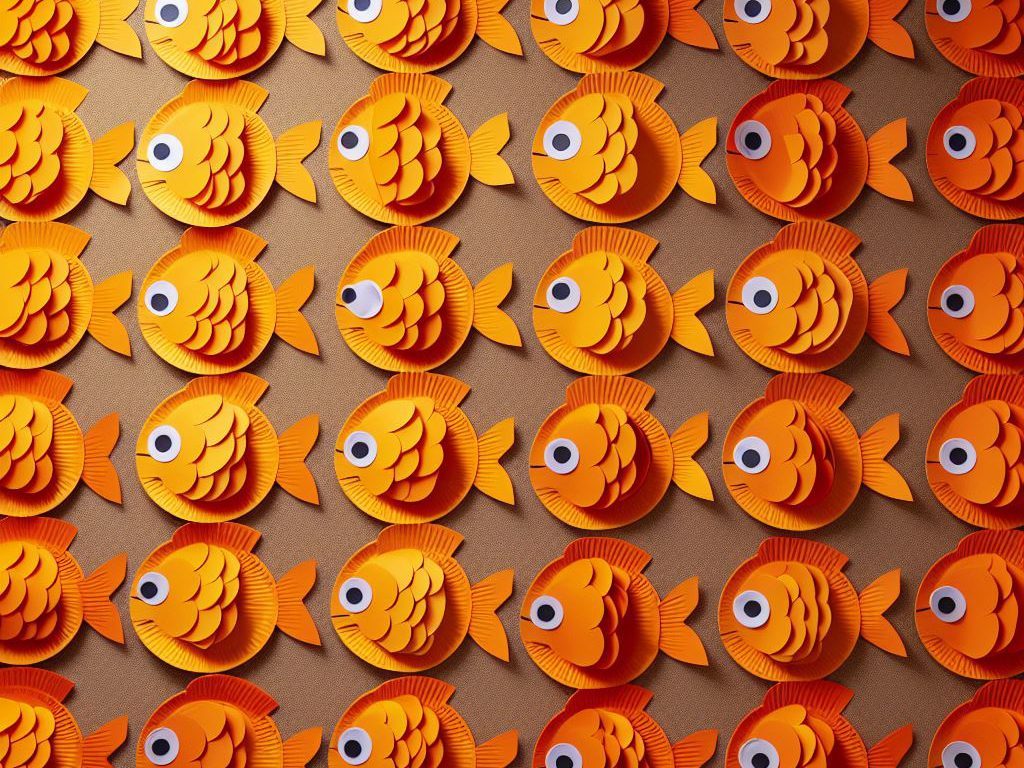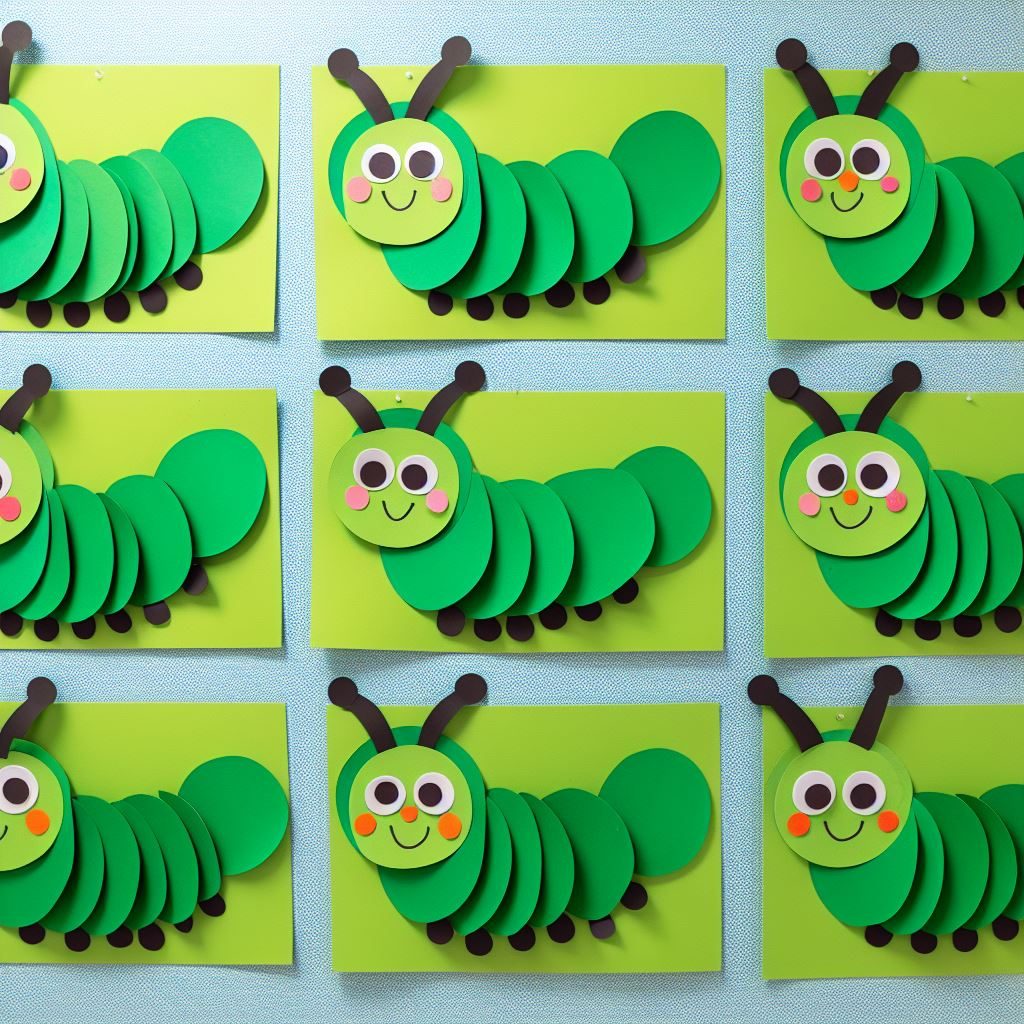
Early learning arts and crafts projects are often too refrigerator-focused. They emphasize end results and final products. The goal is to create something cute to send home for display on the refrigerator. The focus is on the product instead of the process.
Shifting from refrigerator-focused to process-focused by allowing children more power, control, agency, and autonomy in what and how they create is more in line with what we know about how children learn. Young children learn best through hands-on, self-directed, dynamic engagement with the world.
What’s Wrong With Refrigerator-Focused?
Being refrigerator-focused instead of process-focused:
- Stifles Creativity—Emphasizing the final product can limit a child’s ability to explore and express their unique ideas, hindering the development of creative thinking.
- Undermines Individuality—Product-focused projects often follow a specific template, neglecting the diverse ways children may interpret and approach arts and crafts.
- Increases Pressure And Stress—Refrigerator-focused projects tend to come with adult expectations on how the final process should look and the exact steps to follow to get there. This focus on the end result can create stress and anxiety for young children, making the artistic process less enjoyable and more about meeting external expectations.
- Limits Problem-Solving Skills—In refrigerator-focused projects, children may follow instructions without encountering challenges. This limits their opportunities to develop problem-solving skills and resilience.
- Overlooks Physical Development—Projects centered solely on the end result may not prioritize activities that enhance the development of sensory integration and the strength and control of small muscles.
- Misses Emotional Expression—Art is a powerful means for children to express emotions. Refrigerator-focused projects may prioritize aesthetics over emotional exploration, missing a vital aspect of the creative process.
- Undercuts Independence—Over-managed projects don’t allow children to take ownership of their work. Independence is crucial for building confidence and a sense of accomplishment.
- Diminishes Joy in Learning—Children lose the joy of learning through experimentation and exploration when required to construct assembly-line-style refrigerator-focused creations.

Developmental Benefits Of Process-Focused Arts And Crafts
Process-focused arts and crafts provide all the benefits refrigerator-focused projects limit. They allow children the freedom to explore materials and experiment with divergent techniques. Allowing children to plan and execute their art projects encourages self-directed learning. It also provides an opportunity to face and overcome challenges by thinking critically and finding solutions on their own.
Engaging in process art also builds muscle strength and control while providing abundant sensory experiences, which helps with sensory integration. All these skills extend far beyond the arts and crafts area and into myriad aspects of their lives. For example, process-oriented arts and crafts lay the groundwork for reading, writing, STEM learning, and improved self-regulation and social skills.

Wrap-Up
Becoming less refrigerator-focused requires a shift of mind to focus more on the journey than the destination. The journey, the process of planning, creating, and problem-solving; the self-directed contact with diverse materials; the experimentation with technique; is where the learning happens.
Let’s celebrate the scribbles, the messy collages, the unidentifiable sculptures, the drawings made with glue that take a week to dry, the paintings made with the brush held between the Went To Market and Stayed Home piggies, and the other unconventional works. Let’s create environments supportive of such creations. After all, Grandma can proudly display those process-centric creations on her refrigerator, but that endpoint needn’t be the primary focus.
Contribute content to Playvolution HQ
Brought to you by Explorations Early Learning
Browse Trainings

Post Author
Jeff Johnson is an early learning trainer, podcaster, and author who founded Explorations Early Learning, Playvolution HQ, and Play Haven.

Leave a Reply